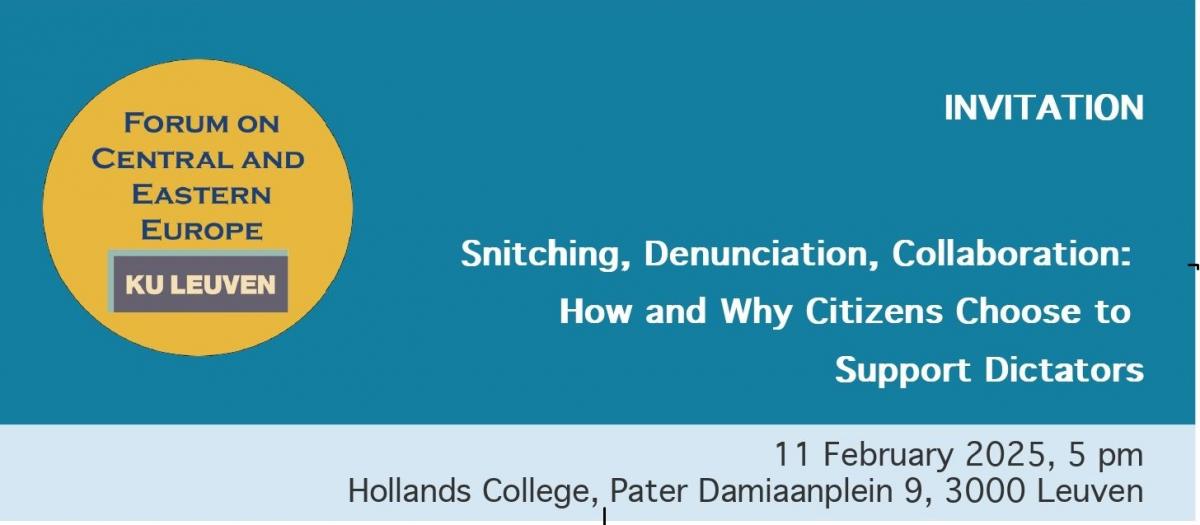Snitching, Denunciation, Collaboration: How and Why Citizens Choose to Support Dictators

The rise of Vladimir Putin has brought about a chilling revival of Soviet-era practices, including denunciations by ordinary citizens. In Stalin's Soviet Union and across Eastern Europe during the communist era, such practices were a tool to control social advancement and suppress dissent. Today, it has resurfaced in Russia, shaping societal dynamics in troubling ways.
Russian anthropologist Alexandra Arkhipova has studied this phenomenon extensively and, remarkably, has also experienced it firsthand. She has been reported to authorities seven times by a stranger—a series of events that contributed to her exile.We are inviting you to a 40-minute conversation, in which Arkhipova will discuss the mechanisms and motivations driving people to report on others in authoritarian contexts. Together with Belgian historian Nico Wouters, we will explore how individuals come to support dictatorships, drawing parallels to the mid-20th-century communist regimes. We will also consider whether certain universal aspects underpin these behaviors, even when comparing societies with different historical and democratic traditions. Are the dynamics of collaboration under oppressive regimes uniquely shaped by the fragility of democratic institutions? Or could similar mechanisms emerge in societies with robust democratic traditions, like contemporary Belgium, France, or the Netherlands? This discussion seeks to uncover both the similarities and distinctions in why individuals—whether in personal or public roles—might cross ethical boundaries to align with oppressive powers. The talk will be hosted by historian Albena Shkodrova.
Dr. Alexandra Arkhipova is a social anthropologist and Visiting Professor at the École Normale Supérieure in Paris. She studies political folklore, rumours, and narratives. Additionally, she runs a popular blog on Telegram and Facebook dedicated to social anthropology and the analysis of the current situation in Russia, with 78,000 subscribers on Telegram. In recent years, she has been researching the reactions of Russians to social and political events, including how Russian society responds to the war in Ukraine. In 2023, she created a virtual exhibition of anti-war street art, NoWobble, featuring around 500 pieces of graffiti, stickers, and flyers that Russians secretly place in public spaces to protest the war. After Russia’s invasion of Ukraine, Arkhipova was designated a “foreign agent” by Russian authorities—a status that strips individuals of their ability to work and live in the country. She was forced to leave Russia and now lives and works in exile in France.
Dr. Nico Wouters is the head of CegeSoma, the Study Centre on War and Contemporary Society. His academic expertise includes the history of World War II, focusing on local governance, the "politics of the lesser evil," the persecution of Jews, historiography, resistance, and post-war processing and memory. Wouters has conducted pioneering research on the collaboration of mayors with Nazi occupying forces in Belgium, the Netherlands, and France. His work delves into the complex choices faced by elites and examines the interactions between occupying powers, local ruling elites, and societies under occupation. By exploring these dynamics, he sheds light on the moral and practical dilemmas faced by local leaders and the broader societal impacts of their decisions during wartime occupation.